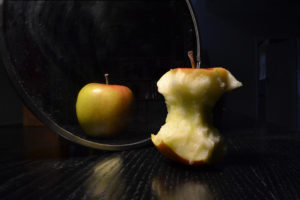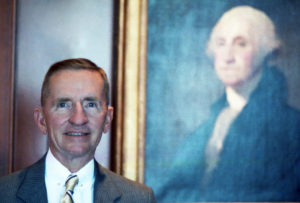America’s History, Now on YouTube
Amid the Web site's trashy home videos and other uneven chronicles of pop culture is a memorable new look at America's past that whets the appetite for more free fun. The National Archives, in celebration of its 75th anniversary, has posted 17 videos to YouTube.The price at the gas pump has been ticking up and unemployment is tightening its grip. Pay cuts, salary freezes and furloughs strangle the wallet. The easy cuts to the family budget — no summer camp, no family vacation — already have been made.
But the school year has ended and the kids are at loose ends. What’s a worried parent to do?
At the risk of attracting the ire of those who justifiably want to pull their children away from computer screens, send them to YouTube. Amid the trashy home videos and other uneven chronicles of pop culture is a memorable new look at America’s past that whets the appetite for more free fun. The National Archives, in celebration of its 75th anniversary, has posted 17 videos to YouTube from its audiovisual collection.
Best known as a stop on the well-worn paths of Washington tourists and school field-trippers, the archives are the keeper of such documents as the Declaration of Independence and the Constitution, and the repository of immigration records for those seeking to research their family’s history. But the archival records are much broader and deeper, encompassing every medium from parchment to photos and video.
“We have tens of thousands of videos in our collection,” says Susan Cooper, a spokeswoman for the archives. Historians and film researchers have long known of the collection, she says, but the general public doesn’t. The new posting to YouTube — what Cooper calls “a fledgling little site” — is a start on making what the archives holds more widely accessible.
Among the initial offerings is a 1942 newsreel recounting the secret visit of Vyacheslav Molotov to Washington, where the Soviet official negotiated an understanding on opening a second European front in World War II. The newsreel also reports on the opening of the Grand Coulee Dam, and it foreshadows contemporary controversy in a report on the establishment of nurseries — essentially, day care centers — for the children of women who were volunteering by the millions to work in wartime factories. “The tiny tots’ work and play is carefully supervised,” the narrator helpfully tells us, so that mothers’ minds will be worry-free and focused on work. “America safeguarding the health and welfare of its young, while mother helps win the war!”
An early NASA film on the life and career of rocket pioneer Robert Goddard is included, as is an account of “The Land of the Giants,” on the transformation of California’s environmental riches, including the redwood forests and Yosemite, into protected parks.
But “Stories From the Great Depression,” an oral history compiled by the archives’ Southeastern region, has that teachable-moment appeal in its eerie connections to economic events of today. The clip begins, predictably, with Franklin D. Roosevelt’s first inaugural address and a narrator’s account of the banking panic that gripped the country in March 1933. But its power is in the stories of elderly people who were children during the Depression, and in those of the children and grandchildren who recount what their elders passed on.
One man recalls childhood baseball games played in a barren field near the town dump, with stones and rocks used for bases. A woman recalls the pride her mother felt when she got a Works Progress Administration job as a librarian, and another tells of the joy of eating limitless blackberry pie — a treat made affordable by the availability of wild blackberries, free for the picking. Sometimes blackberry pie was all the family had to eat. That was, in its way, better than the story of migrants who made their way from Maine to Michigan in search of work, only to discover that people in their adopted town had resorted to breaking into a state prison to steal the fresh food grown by inmates in a vegetable garden on the grounds.
The joy of the videos is not found in their mere viewing, but in the window they provide into the vast archival collection — a free compendium of history enlivened by more than the familiar images of presidential speeches, war footage or contemporary television clips. With tens of thousands of videos in the archives’ collection, Cooper says, it will take some time to post a more comprehensive sample at its site, www.youtube.com/usnationalarchives.
Meanwhile, the computer can only serve as a tease. With 12 presidential libraries and other regional collections around the country, the archives can be one answer to the twin challenges of family budget constraints and childhood boredom.
Marie Cocco’s e-mail address is mariecocco(at)washpost.com.
© 2009, Washington Post Writers Group
Your support matters…Independent journalism is under threat and overshadowed by heavily funded mainstream media.
You can help level the playing field. Become a member.
Your tax-deductible contribution keeps us digging beneath the headlines to give you thought-provoking, investigative reporting and analysis that unearths what's really happening- without compromise.
Give today to support our courageous, independent journalists.





You need to be a supporter to comment.
There are currently no responses to this article.
Be the first to respond.